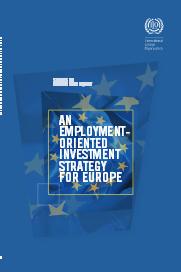Rooduijn, M. (2015) “Populist arguments have become more pervasive in Western European countries“, LSE EUROPP, 29 Ιανουαρίου. To what extent has populism become a feature of public debates in European countries? Matthijs Rooduijn employs content analysis to assess the frequency of populist statements in newspaper articles in France, Germany, Italy, the Netherlands and the UK. He concludes that populism is more widespread in these countries than previously assumed, with …Read More
How Greece Could Change the Future of Europe
Weisbrot, M. (2015) “How Greece Could Change the Future of Europe“, Vice News, Opinion & Analysis, 28 Ιανουαρίου. The Syriza party’s big win in Greece’s legislative election last weekend is a turning point in the long political fight over Europe’s botched recovery from the financial crisis and world recession of 2008-2009. The occasion presents a milestone for the eurozone, which has been plagued by mass unemployment and economic stagnation, …Read More
An Unemployment-Oriented Investment Strategy for Europe
Escudero, V., Horne, R., Kühn, S., Milasi, S., López Mourelo, E., Pignatti, C. & Silvander, J. (2015) “An Unemployment-Oriented Investment Strategy for Europe“, International Labour Organization (ILO) Research Department, Studies on Growth with Equity, Ιανουάριος. Key Policy Options and Considerations Against a backdrop of sluggish economic conditions and continued weak job creation, the Investment Plan proposed by the European Commission President Jean-Claude Juncker would provide a rapid economic stimulus …Read More
Bank resolution in Europe: The unfinished agenda of structural reform
Ringe, G. & Gordon, N. J. (2015) “Bank resolution in Europe: The unfinished agenda of structural reform“, VoxEU Organisation, 28 Ιανουαρίου. Bank resolution is a key pillar of the European Banking Union. This column argues that the current structure of large EU banks is not conducive to an effective and unbiased resolution procedure. The authors would require systemically important banks to reorganise into a ‘holding company’ structure, where the …Read More
Why Europe Will Cave to Greece
Crook, C. (2015) “Why Europe Will Cave to Greece“, Bloomberg View, 28 Ιανουαρίου. A prediction for you: Greece and the European Union will split the difference in their quarrel over debt relief. What’s uncertain is how their respective governments will justify the new deal, and how much damage they’ll inflict on each other before accepting the inevitable. EU governments, with Germany in the lead, are saying that debt writedowns …Read More
Syriza, Le Pen and the Power of Big Ideas
Bershidsky, L. (2015) “Syriza, Le Pen and the Power of Big Ideas“, BloombergView, 26 Ιανουαρίου. It may seem ironic that Marine Le Pen, the leader of France’s extreme right Front National, rooted for the extreme left Syriza in yesterday’s Greek election and rejoiced at its landslide victory. Yet there’s nothing unusual about it: Syriza, Front National and other European anti-establishment parties are partners in a political revolution that appears to be about to …Read More
Are Recipients of Social Assistance ‘Benefit Dependent’? Concepts, Measurement and Results for Selected Countries
Immervoll, H., Jenkins, P. S. & Königs, S. (2015) “Are Recipients of Social Assistance ‘Benefit Dependent’? Concepts, Measurement and Results for Selected Countries“, Institute for the Study of Labor (IZA), Discussion Paper No. 8786, Ιανουάριος 2015. ABSTRACT Are Recipients of Social Assistance ‘Benefit Dependent’? Concepts, Measurement and Results for Selected Countries Means-tested Social Assistance (SA) benefits play an important role as social protection floors supporting households in financial difficulties. …Read More
Syriza’s victory underlines the transformation of Greek political culture during the crisis
Karoulas, G. (2015) “Syriza’s victory underlines the transformation of Greek political culture during the crisis, LSE EUROPP, 27 Ιανουαρίου. On 25 January, Syriza, led by Alexis Tsipras, won the 2015 Greek parliamentary elections and formed a new coalition government with another anti-austerity party, the Independent Greeks. Gerasimos Karoulas writes on the changes within Greek political culture which have occurred in Greece during the country’s economic crisis and which were …Read More
Quantitative easing in euro zone requires shared risk
Gros, D. & Kopf, C. (2015) “Quantitative easing in euro zone requires shared risk“, Centre for European Policy Studies: Economic Policy, Researchers’ work published externally, 21 Ιανουαρίου. In their column published online by Reuters, Daniel Gros and Christian Kopf offer their assessment of the programme of sovereign bond purchases to be undertaken shortly by the European Central Bank in the euro area. They examine in particular the accounting technique …Read More
The Greek Stand-By Arrangement
Krugman, P. (2015) “The Greek Stand-By Arrangement“, The New York Times, 25 Ιανουαρίου. For tomorrow’s column I went back to the original, May 2010 stand-by arrangement for Greece, to see what the troika was demanding and predicting at the beginning of the austerity push, and how it compares with what actually happened. First of all, I quite often encounter people who claim that Greece never really did austerity. I …Read More









